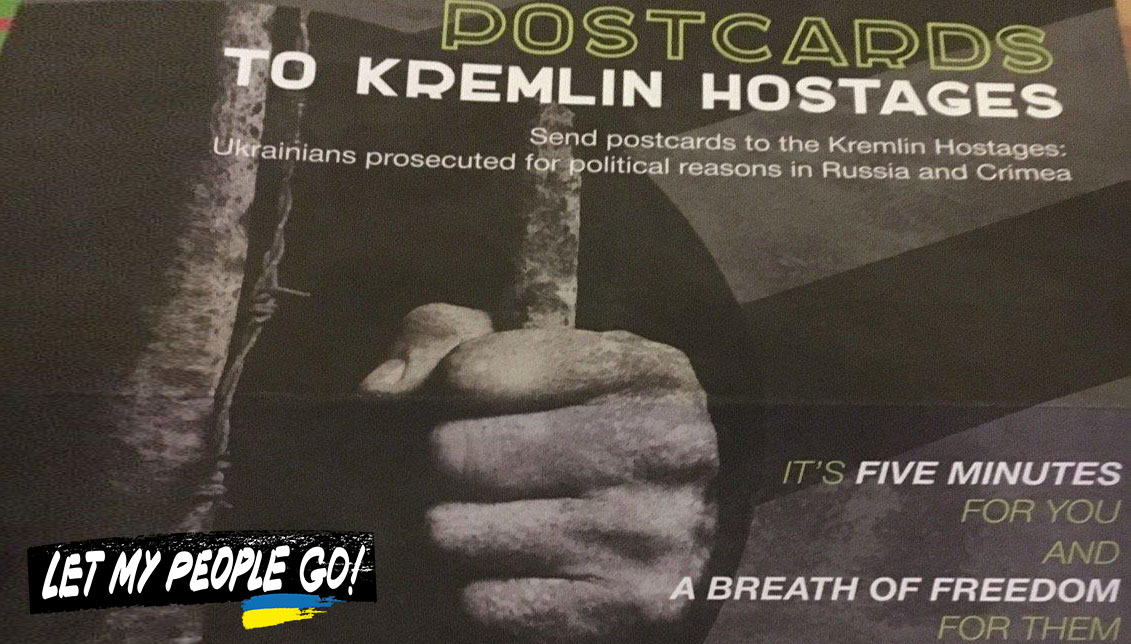The Ukrainian TV channel Hromadske has released its English-language version of a documentary on Oleg Sentsov and Oleksandr Kolchenko. It shows the Russian colonies in the Arctic and Ural mountains where the two Ukrainian political prisoners of the Kremlin are being held.
The authors of the film, titled "From Crimea to Siberia: How Russia is Tormenting Political Prisoners Sentsov and Kolchenko," visited the key cities through which the political prisoners had been taken, starting from occupied Crimea.
"Sentsov and Kolchenko were first held in a detention center in Moscow, tried in Rostov, transported to the Urals and then to the Russian Arctic. Between the two of them, they have covered almost 20,000 kilometers, or, half the distance around the Earth. Their entire journey has been within Russia. Or actually, within its prison system.
We traveled to the key sites along their transport route – where the Ukrainian consuls were denied access and where lawyers today face difficulties getting in – to find out in what conditions they are being kept and who is responsible for their fate," the film's creators said.
Both political prisoners are now on hunger strike. On 14 May 2018, Oleg Sentsov announced a hunger strike, which he said he will end only when Russia releases all Ukrainian political prisoners. Oleksandr Kolchenko joined him on 31 May, demanding to release Sentsov. Another Ukrainian political prisoner, Oleksandr Shumkov, is also on hunger strike, supporting Sentsov's demands.
There are at least 70 Ukrainians who Russia imprisoned for political reasons.
Oleg Sentsov, a native of Crimea, was arrested on 11 May 2014 shortly after the Russian occupation of Crimea. Together with three other Crimeans, Oleksandr Kolchenko, Gennadiy Afanasyev, and Oleksiy Chirniy, he was accused of “plotting acts of terrorism” and being part of the Right Sector, a far-right Ukrainian organization Russia outlawed. These accusations are based entirely on testimonies of Gennadiy Afanasiev and Oleksiy Chirniy. Both Afanasiev and Chirniy have stated they were tortured by FSB, and after their “confessions” were sentenced to the least possible punishment for terrorism, 7 years of jail, whereas Sentsov, the “leader” of the “terrorist group,” was sentenced to 20 years and Kolchenko to 10 years. On 31 July 2015 Afanasyev retracted his testimony as given under duress. After that, he was beaten again in prison. Sentsov and Kolchenko have stated repeatedly that they were tortured and beaten, and there is nothing to assume that the same didn’t happen to Chirniy.
The trial being entirely based on forced testimonies, the alleged plot to blow up Lenin’s monument in Simferopol, Crimea which the prisoners are accused of, and the convoluted connection to Right Sector speak of a return of Stalinist show trials in Russia, according to Russian and Ukrainian human rights watchdogs.
More:
- The Sentsov-Kolchenko case: what you need to know
- Afanasyev and Soloshenko: How the FSB breaks prisoners
- Why is the Kremlin taking Ukrainian political hostages? | VIDEO
- 60 MEPs call on the EU to boycott FIFA-2018 over Russian wars, Ukrainian political prisoners
- Crimean jailed for Ukrainian flag announces termless hunger strike
- Western leaders should not allow the World Cup to become Putin’s tribune – MEP Harms
- PACE calls on Russia to release Sentsov and other Kremlin hostages
- Moscow deaf to 3 years of international outcry to free imprisoned Ukrainian filmmaker
- World-famous intellectuals call on Putin to release filmmaker Sentsov before 2018 Football Cup
- Political prisoner Zeytullaev: on a hunger strike for all Crimean Tatars oppressed by Russia
- Crimean jailed for Ukrainian flag announces termless hunger strike
- World writers community urges Moscow to free Ukrainian and other prisoners of conscience #LetMyPeopleGo





